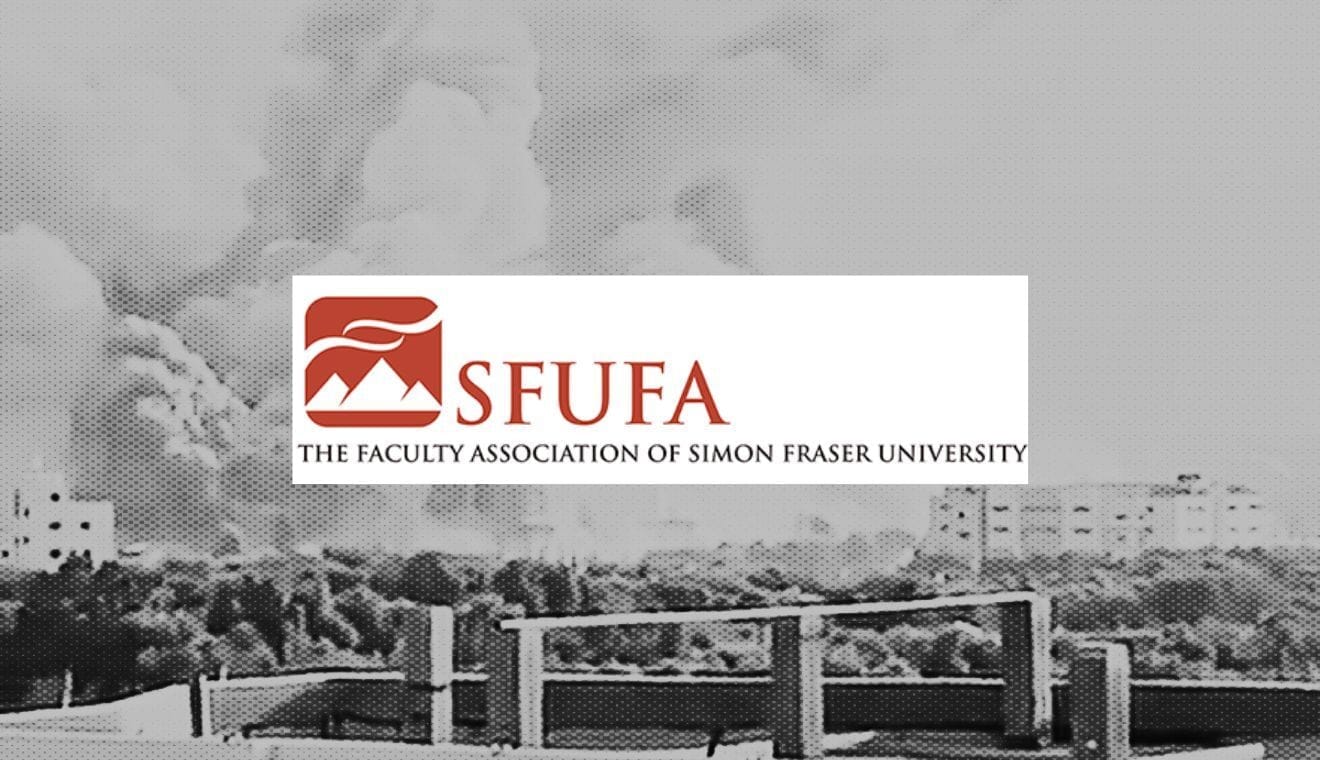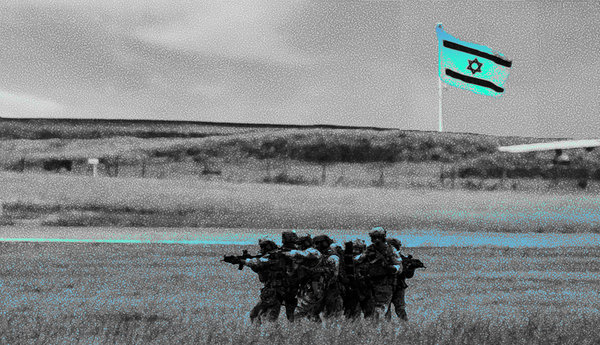First, a routine vote by members of a university faculty union was targeted by an apparent hack.
Then, the vote became the subject of a legal battle at the B.C. Supreme Court over the very purpose of a union.
It’s a lot of drama for two fairly standard motions that urged Simon Fraser University (SFU) to condemn Israel’s destruction of Gaza’s educational institutions and divest from weapons companies. But the protracted conflicts show just how high tensions have risen on Canadian campuses, and highlight the extent of the challenges faced by critics of Israel’s war on Gaza.
“It’s not only the suppression of pro-Palestinian speech; it’s the suppression of our academic freedom and our ability to stand in solidarity” with Palestinians, whom many legal scholars believe are experiencing genocide, said Kendra Strauss, an SFU professor and labour studies program director who tabled one of the motions.
She said that the apparent hack and the legal challenge are part of a broader pattern at SFU where both staff and outside speakers have been silenced on the topic of Gaza.
The union votes in question took place electronically in May. Members of the Faculty Association of Simon Fraser University (SFUFA) were asked to vote on two motions brought forward by their colleagues.
The first motion, tabled by Strauss, was called “Motion on Israel/Palestine,” and it stated that Israel had destroyed nearly 400 educational facilities in Gaza, including all of its universities, and killed more than 300 teachers and professors.
The motion urged SFU to condemn Israel’s destruction of Gaza’s educational system, suspend partnerships with Israeli universities and create a “hardship fund” for students impacted by the violence, among other calls.
The second motion, “Motion to Divest,” urged SFU to drop its investments in weapons manufacturers, such as BAE Systems.
There is a long history of workers using their unions to oppose war and show solidarity with other workers around the world, including Palestinians. Canada’s largest union, for example, passed a motion in October 2023 demanding that Canada call for a ceasefire in Gaza and stop selling arms to Israel.
What’s highly unusual is that the electronic vote at SFU was breached in an apparent hack.
On May 17, the day that voting ended, SFUFA’s executive director Brian Green emailed faculty members to say that the results could not yet be announced, according to a copy of the email obtained by The Maple.
“We are [...] concerned about irregularities that indicate a possible breach of the voting system,” Green wrote. “The Association is working with IT and Security to investigate these concerns, and will not report results of the vote until we can be certain of its integrity.”
On June 25, after the votes had been re-cast using a different online system, Green reported to SFUFA members in an email that both motions had passed. The email, also obtained by The Maple, provided more details about the breach.
SFU’s IT department had found that 305 identical votes were cast in a 30-minute period on the last day of voting, Green wrote. The votes were cast from an IP address outside of SFU’s system but linked to a specific SFU email account, according to his email.
Green’s email indicated that it may have been an SFU staff member or student who tried to throw the vote.
“We understand that SFU’s internal IT investigation is now complete, and a report has been submitted to the responsible University authorities. It is unclear as to whether there is a further police investigation, as that is not uncommon in cases of internet fraud, but this would not be shared with us.”
The matter was further complicated, he wrote, by the fact that SFUFA, as the faculty’s union, would have to represent any faculty member facing disciplinary action for any such breach.
In an email to The Maple, Green declined to be interviewed.
“SFU’s IT investigation was indeed completed. We were told a breach had been identified, and that a report was provided to SFU’s human resources offices, as any further investigation would be led by them,” he said.
“On that issue, SFU indicated some time ago they were reviewing the report but we have heard nothing more.”
The union does not want to share whether the fraudulent votes were cast for or against the motion, he said.
The breach shocked faculty, according to Strauss. “This is really unprecedented to have a vote on a union motion essentially hacked,” she said. “It’s a direct interference in the democratic governance of our union [...] it was an attempted illegal interference in our process of collective governance and decision making.”
The university, Strauss said, hasn’t provided any further information to staff.
“We don’t really know what the university’s response has been,” she said, pointing out that SFU hasn’t made a public statement about the breach. “It has been extremely un-transparent.”
A spokesperson for the university provided a written statement but did not directly answer specific questions, such as whether the individual responsible for the breach has been identified.
No personal information was compromised because of the breach, the spokesperson said. “The tool that was used to conduct the survey had already been planned to be retired; it was deactivated from use on July 31, 2024. The tool has now been replaced with a new voting solution.”
A spokesperson for the RCMP declined to confirm whether SFU reported the breach to police or whether police are investigating.
Motions Taken To Court
As summer continued, the motions faced a different battle.
On July 30, a petition was filed at the B.C. Supreme Court challenging the right of SFUFA to even put the motions to a vote. The petition was brought by 13 faculty members.
The case argues that under B.C.’s Societies Act, the law incorporating SFUFA, unions are prohibited from carrying out activities or exercising powers in ways that are contrary to their purposes.
Both motions were proposed for the purpose of expressing an “opinion on geopolitical events and aligning with associated political movements,” the petition says.
The 13 faculty are asking the court to order the union to nullify the passing of the motions and reimburse them for their legal fees.
Claire Hunter, the lawyer representing the petitioners, did not respond to questions that The Maple sent by email.
Last week, Strauss’ lawyer filed her own sworn affidavit to the court.
In it, she argues that Israel’s violence in Gaza constitutes “scholasticide,” or the systemic destruction of an education system, and therefore is relevant to educators in B.C.
She also referenced a long list of incidents at SFU that she said violated academic freedom, including the administration refusing to book spaces for events concerning Palestine and one case in which a faculty member’s office door was vandalized with the words, “F–k Gaza” and “F–k Palestine.”
“Therefore, [Faculty for Palestine] members also believed that if we, as academics, did not address the suppression of academic freedom related to discourse on Palestine in some manner, that in and of itself would harm the integrity of the academic profession,” Strauss’ affidavit says.
Emma Paling is a journalist and writer in Toronto. Her award-winning reporting has been published widely by CBC News, The Breach, HuffPost and Vice.






